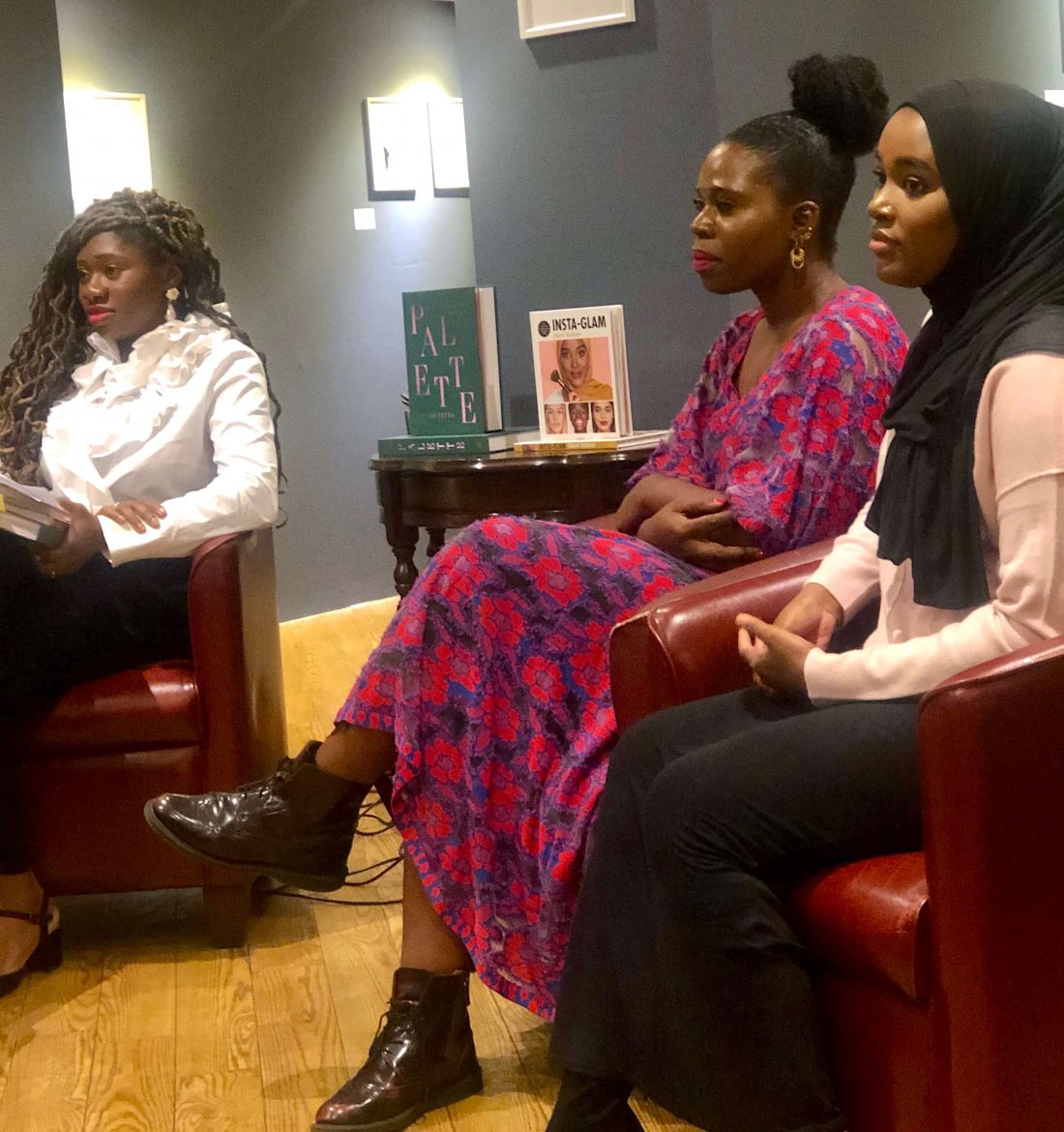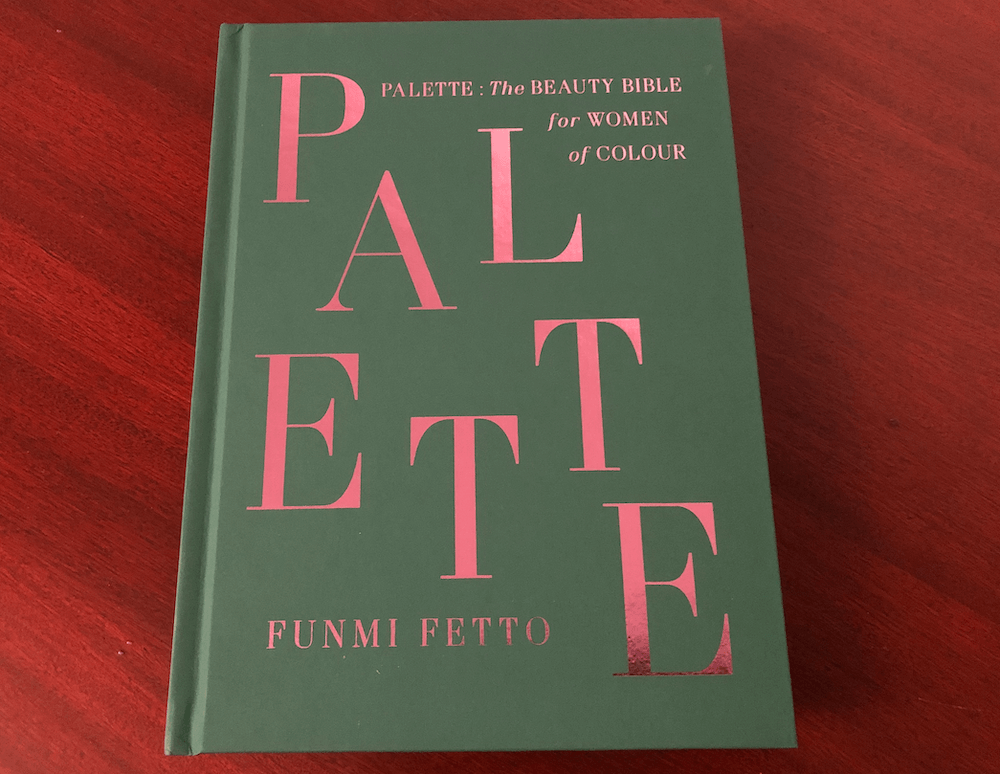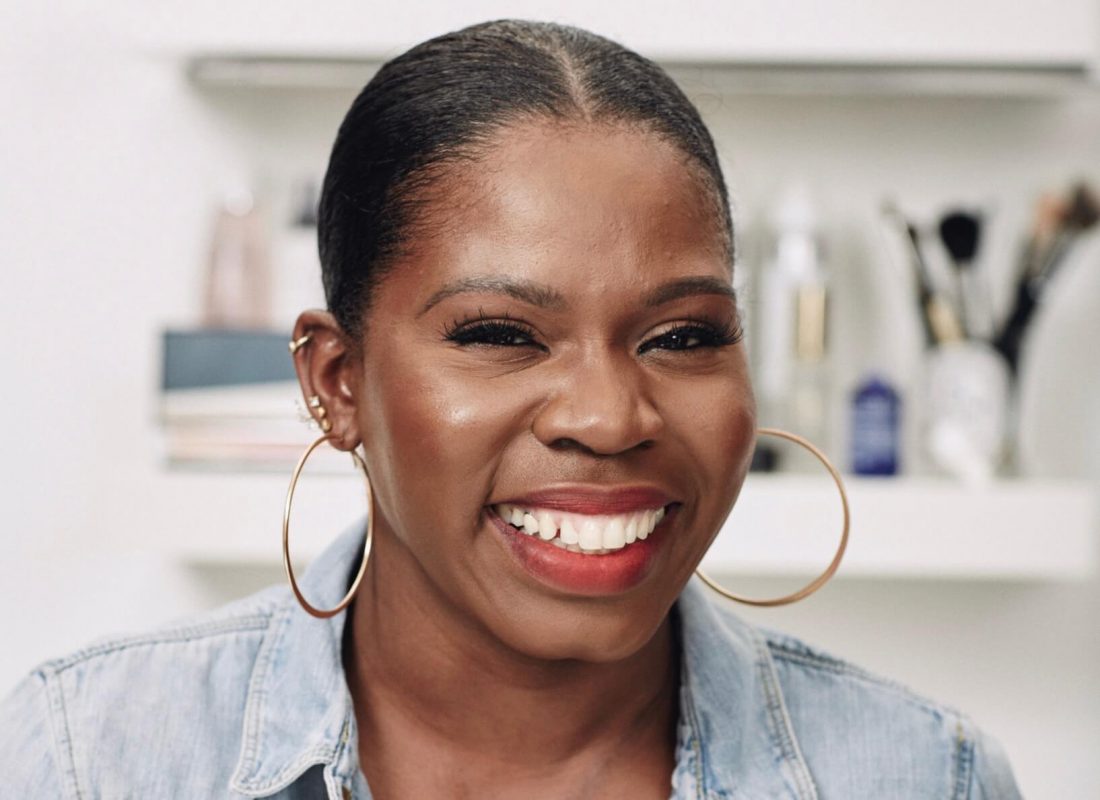Earlier this month, Black Ballad and Waterstones hosted ‘Beauty and Inclusivity’, a panel event that featured one of our favourites, renowned beauty expert, Funmi Fetto.
The well attended, yet intimate talk at Waterstones, Gower Street explored issues around beauty, exclusion and empowerment. The event, brilliantly hosted by Black Ballad founder, Tobi Oredein, was a chance to learn more about the Glamour Executive Editor, The Observer beauty columnist and former British Vogue Beauty Editor’s new book Palette. Palette is not only a first-of-its-kind kind beauty book directly aimed at women of colour, it is a rallying call for representation and inclusivity.

They were joined by beauty influencer and author of Insta-glam Hani Sidow, whose Glamour UK column ‘The Glam Hijabi’ breaks taboos about being a beauty-loving Hijab wearer, helping to inspire other women on the topics of Muslim beauty, fashion and modesty.
Here are some highlights from Funmi Fetto’s talk on the night, where she answers questions from Tobi Oredein on the discussion around where the beauty industry has been, where it is now and what still needs to change.
___________________________________________________________________________
What do we think about the way beauty brands speak to Black women and do they speak to us differently to white women?
A lot of brands approach Black women tentatively. It’s strange as our needs are the same. We just want to be considered, we don’t want to be treated as invisible.
A lot of these brands may use Black models and they do have some of the darker shades. But when you look within the structure of the companies, the decision makers are mostly Caucasian. They need to be hiring people of colour to bring about real change from within.
In some beauty campaigns, when a Black model is used, she is often a light skinned woman and some Black-owned brands even do this. How can we dismantle colourism in the beauty industry?
Before we can even think about dismantling colourism in the beauty industry – we need to dismantle colourism within ourselves. When we think of colourism, it’s a problem in our community where our idea of being beautiful is being light skinned. People are still using the term “good hair” and I’m wondering, ‘what year are we in?’
Sometimes, when you hear Black women speaking about other beautiful Black women, they’re referring to women who don’t look like themselves.
In the mainstream beauty industry, it’s about education. For a long time, they’ve had one idea of what Black beauty is and they model that on their eurocentric ideal of beauty. That is in itself a problem.
I consult for many high-end beauty brands and I’m sometimes presented with a social media campaign featuring five girls and my question to them is “why are they all white?” When I first started having these conversations with brands, they were shocked as it wasn’t something anyone had actually said to them. I would ask them why they were only using white women to represent their entire brand? There are other types of women out there, we need change it up.
As women of colour, when we are in positions of authority and are able to mould those conversations, its important to use our voice and our platforms, then we can make changes.
How has your culture and being African helped you celebrate your beauty?
For me beauty within my culture is not really about make-up. Beauty is about so much more. It’s about laughter and joy. In African culture it’s about getting together, eating and enjoying life. There is also something quite beautiful about seeing women of different shapes and sizes, being confident in their own skin.
Palette – A beauty bible for women of colour: How did you find the book writing process?
I did enjoy writing the book, although it was a rigorous process. There were some products I’ve used for years that I knew would definitely go in the book, so that was easy. But doing research for 10 sunscreens for example, would involve testing around 60. So, I was trying lots of products while trying to hit deadlines. I was also doing my column with The Observer and my work with Vogue, while juggling this with family life. It was an intense period, but I did love writing it, because I feel strongly about the message of the book – to speak to the beauty industry at large about the lack of inclusivity and representation of black women. And it needs to go beyond the shades of our foundation.

Why did it take Rihanna’s Fenty Beauty to get the mainstream beauty industry to take notice of Black women?
It’s really the power of Rihanna. She is extremely influential. She’s used her popularity and platform well. Fenty Beauty did a good job marketing to Black women. By showcasing a very diverse range of women of colour, there was someone everyone could identify with.
Although Mac and Nars have been catering to Black women for years, the mistake they made is they didn’t shout about it. They were complacent without realising it.
Diversity has been a big talking point in the fashion and beauty industry in recent years, so the timing for Fenty Beauty was ideal and Rihanna capitalised on it.
We’ve all heard the saying, Black doesn’t crack, but how can we make sure older women are represented in the beauty industry ?
As a journalist, I write with a larger audience in mind. If I’m writing about hydrating serums for instance, I’ll talk about products for younger skin and older skin. My The Observer column is colourless and ageless.
As a creative consultant on a Space NK beauty shoot, I chose a 70-year-old woman mixed race woman. Initially the powers that be were mortified but interestingly, some of the reservations came from women, not men.
“Sometimes as women, we need to champion each other more.”
In all my years of shooting, I’ve never had such an incredible reaction to a shoot. The feedback was insane! and this was from all women, not just older women, or black or white women.
It was real representation, a woman in her 70s being represented in a major beauty shoot. If we are in a position of authority to make those decisions, we have a responsibility to show and celebrate different types of beauty.

To end on a lighter note, who is your beauty idol?
I find that a really bizarre question! I have no idea. Growing up you are plagued with so many insecurities. You look at so many people and think, ‘they are so beautiful, I wish I looked like them, or I wish my nose was different.’ At this point, I can recognise and celebrate other people’s beauty, but I am not going to look at anyone else and think that’s the goal. We should all be able to look in the mirror and say this is it.
This article was written by Traci Aina












